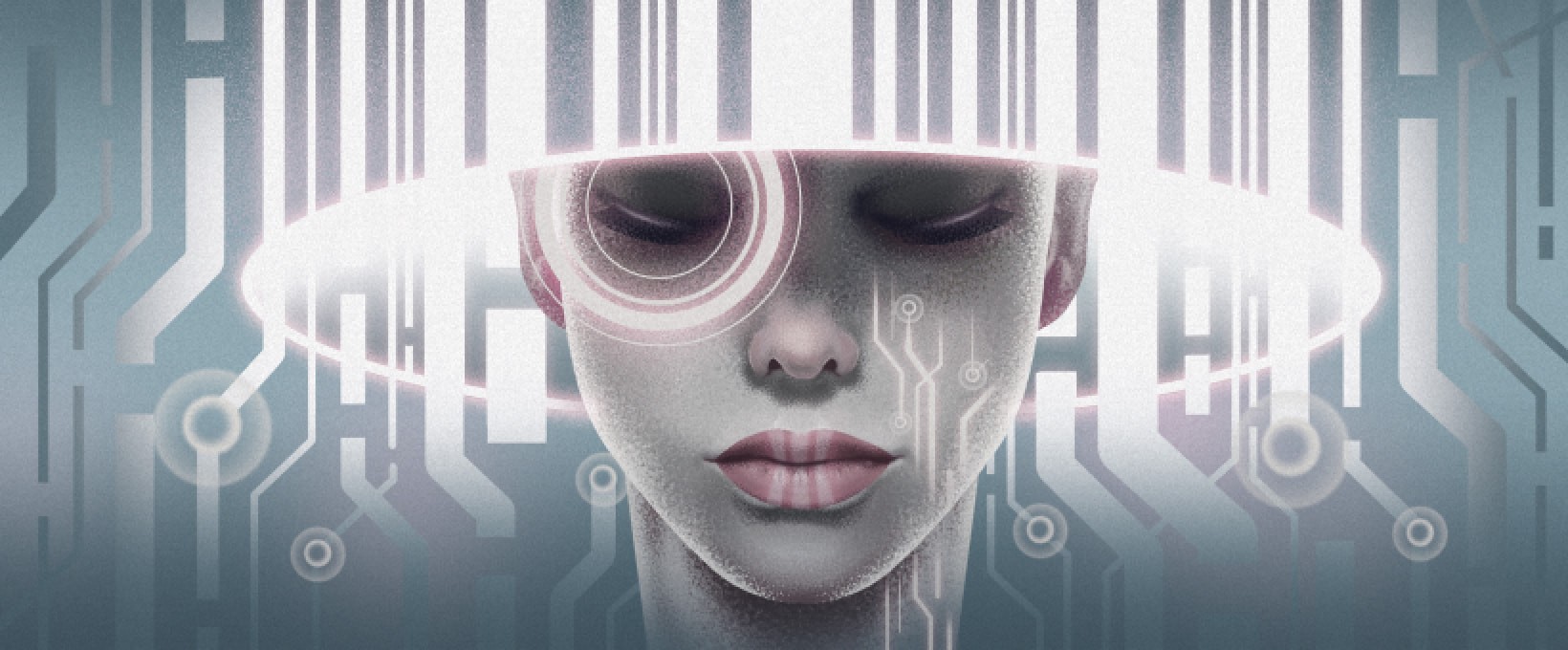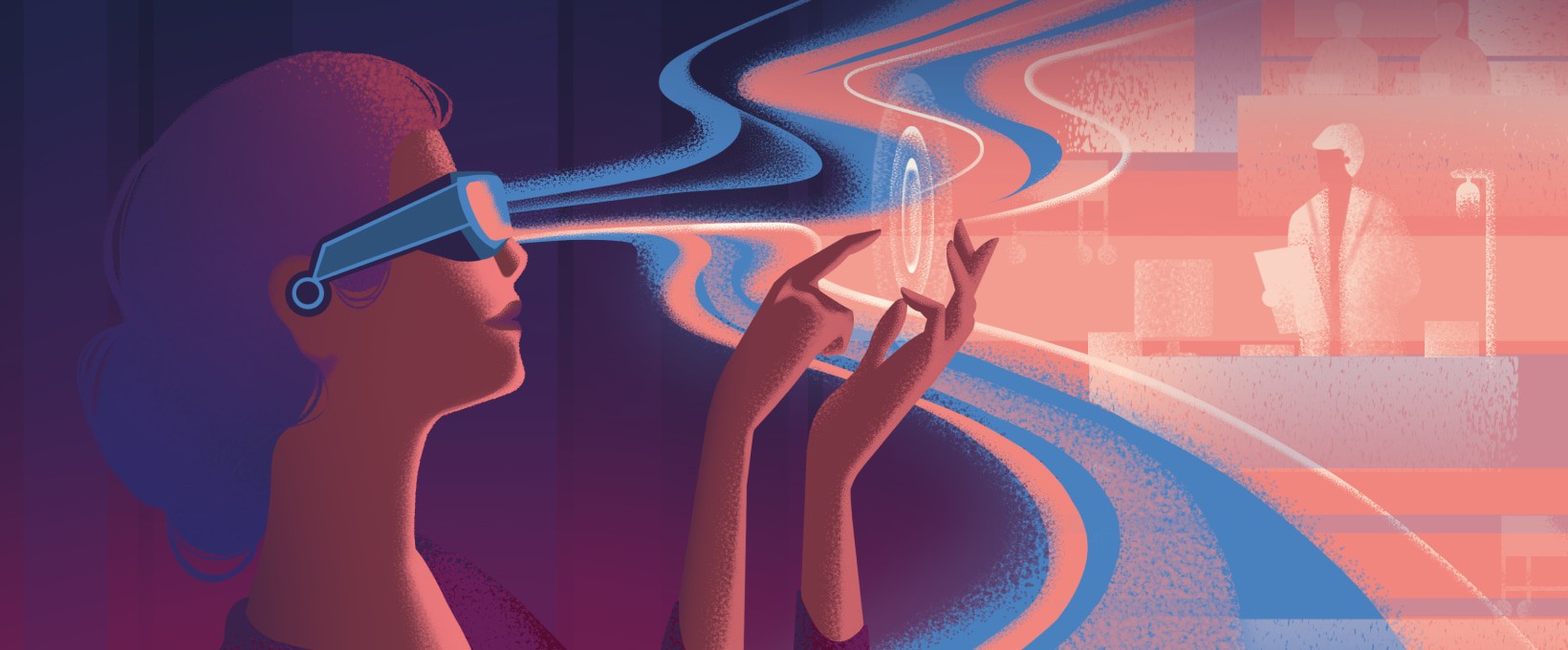- What is AI in HR?
- Notable applications of AI in HR
- Recruiting
- Onboarding & offboarding
- Talent management & retention
- Learning & development
- HR operations & staffing strategy
- Benefits of AI-powered HR solutions
- Challenges and concerns with AI recruiting solutions
- Preparing and implementing AI-driven HR solutions
- The future of AI in HR
- Conclusion
- FAQ on AI in HR
For decades, the Human Resources sector was primarily associated with administrative work, such as processing payroll, managing employee records, or handling compliance. Today, it has a significant impact on business outcomes, employee experience, and organizational growth.
This shift has been made possible largely due to artificial intelligence. Let’s explore the peculiarities of AI in HR, the benefits it offers, and the key considerations when implementing smart solutions.
What is AI in HR?
Each company aims to attract top talent whose work drives strong results. To achieve this, organizations are looking for ways to enhance traditional human judgment.
In this context, AI-powered HR solutions offer substantial support, which is why more and more companies are implementing it to enhance productivity. The proportion of HR leaders planning or leveraging GenAI has risen from 19% in mid-2023 to 61% by early 2025 (Gartner).
Critical fields in which AI shows remarkable performance include:
- Recruiting: Smart tools align applicants to jobs faster and with greater precision and thus streamline hiring.
- Workforce involvement: Using predictive insights and mood analysis allows for a tailored strategy to boost employee involvement.
- Workforce planning: Smart tools accurately forecast future skill needs and potential talent shortages and thus boost efficiency.
So, what is behind this remarkable shift? Machine learning assists human resources in recognizing trends within workforce data, including anticipating potential employee turnover and pinpointing top-performing staff. GenAI can draft everything from role specifications to training materials or personalized career plans. NLP powers chatbots and virtual assistants, enabling them to quickly interpret and reply to employee inquiries. Meanwhile, automated systems manage repetitive activities such as interview scheduling, request handling, and payroll processing.
As a result, HR specialists can focus on more creative work, including developing an AI strategy for business.
Notable applications of AI in HR
There are various ways companies resort to AI-based HR solutions to attract, engage, and retain workforce.
Recruiting
Numerous applications, diverse backgrounds, and various skill sets to analyze—companies traditionally needed a lot of time and effort to find specialists with appropriate qualifications. With the right AI recruiting software, however, workflows have become streamlined and smooth.
Here is how it works:
- Candidate sourcing: Smart tools scan job boards, professional networks, and databases to discover potential candidates, which is much faster than manual searches.
- Resume screening and matching: Algorithms evaluate resumes against job descriptions, highlighting the most suitable applicants.
- Assessment and shortlisting: Smart testing platforms check skills, character traits, and alignment with company culture.
- Chatbots and communication tools: Virtual assistants respond to candidate queries, arrange interviews, and provide updates
As a result, modern AI recruiting solutions significantly speed up the hiring process. The good news is that they are also more objective than some human experts. People can be biased, whereas artificial intelligence treats all candidates equally.
Onboarding & offboarding
You can find the right professionals, but you also need to create a supportive environment to retain them. If they choose to leave, they should do so on good terms, keeping you as a reliable employer and willing to recommend you further. For this reason, it’s important to pay close attention to your onboarding and offboarding processes.
In this respect, AI makes things smoother for both staff and employers:
- Automated documentation: Systems generate and manage contracts, tax forms, and compliance paperwork.
- Personalized onboarding: New staff members receive tailored training modules. As a result, they adapt more quickly.
- Offboarding assistance: When someone decides to leave, seamless knowledge transfer is vital. Automated workflows simplify offboarding, while AI supports adherence to local regulatory requirements.
Talent management & retention
One of HR’s biggest challenges is keeping employees engaged and motivated. Forward-looking companies invest heavily in this, offering numerous events, benefits, special perks, and so on. When doing so, it’s better not to rely on guesswork as to what a particular group of employees might find especially attractive. You can also use AI, which gives timely and relevant insights into workforce behavior and satisfaction.
So, you can resort to the following:
- Predictive analytics: Smart tools can identify specialists at risk of leaving. What’s more, they detect the reasons behind potential turnover as well.
- Engagement monitoring: Of course, understanding someone’s emotions and attitude toward their work demands in-person conversations first. But you can also use robust sentiment analysis tools when conducting various surveys or asking for feedback. All this helps track employee mood and works quite accurately.
- Skill-gap analysis: One more important thing to consider is mapping employee skills against actual business needs. Thanks to intelligent solutions, an organization can reasonably manage its upskilling and reskilling initiatives.
Learning & development
With employee training being a significant component of an organization’s HR efforts, companies need to offer highly informative courses. Yet, learning is easier and enjoyable if it hits home with a particular person. That’s why customized educational experiences become indispensable. And as is the case with any personalization, intelligent technology is quite helpful in this case as well.
- Adaptive learning platforms: Each of us has our own learning curve and difficulties. Thanks to intelligent tools, training content can be adjusted based on a specialist’s progress and achievements.
- Individual training recommendations: The goals of staff members are different as well, so are the needs of businesses. AI offers courses, microlearning modules, or career paths that are in accord with individual objectives.
What’s more, learning is an extremely fruitful soil for applying GenAI. You can generate diverse educational content, quizzes, and even coaching dialogues.
HR operations & staffing strategy
AI also helps human experts improve daily HR operations and achieve impressive results in long-term workforce planning. In some cases, automation is particularly important (arranging shifts, managing leave requests, and balancing resources, for instance).
Drawing from past information, algorithms can also predict absenteeism patterns and suggest proactive measures. They have proven valuable for compliance checks across multiple regions, aiding HR staff in aligning policies with regulations.
Using automation alongside predictive data allows specialists to make more accurate choices and approach their responsibilities with greater confidence.
Benefits of AI-powered HR solutions
From what has been outlined, we can highlight the key advantages of implementing AI HR solutions:
- Greater productivity and lower costs: Most repetitive tasks can be easily delegated to smart tools for greater efficiency. Payroll processing, interview scheduling, employee inquiries—automating these activities frees up HR resources and lowers operational costs.
- Enhanced workforce experience: Nowadays, HR activities are expected to be smooth and tailored to the individual needs of each person. Chatbots can offer immediate support for questions concerning policies or leave requests. Smart solutions also suggest career paths and highly personalized courses. The result is a more satisfying employee journey that keeps people motivated.
- Minimized bias: Ensuring fairness in hiring has always been an important issue for HR professionals. AI-powered recruiting tools help tackle this by evaluating candidates based on skills, qualifications, and productivity indicators rather than personal traits. This approach can curb unconscious prejudices and promote inclusivity in hiring.
- Data-driven decision making: Artificial intelligence allows for choices rooted in concrete information rather than assumptions. Predictive analytics helps experts forecast turnover, identify emerging talent, and pinpoint areas where engagement may be slipping. This allows HR teams to manage the workforce proactively instead of reacting to issues as they arise.
- Better scalability for large organizations: For global companies managing thousands of employees, scaling HR processes manually is nearly impossible. AI automates high-volume tasks, from processing applications across regions to customizing training for diverse teams, ensuring scalability without sacrificing quality.
As a company offering smart solutions and AI consulting services, Andersen has its own platform that demonstrates how intelligent technology can transform hiring. Recruiter.AI accelerates recruitment while maintaining quality. It generates customized questionnaires, provides opportunities for video interviews with real-time speech-to-text transcription, and enables data-driven assessment.
Companies using this product have reported up to four times faster hiring, 90% less time to hire, and a 50% reduction in cost per interview.
Challenges and concerns with AI recruiting solutions
Convincing as they are, AI-driven HR solutions should still be approached responsibly. The area of intelligent technology still poses numerous challenges, and one of them is ethical application. That’s why you should pay close attention to the following aspects:
- Data privacy and compliance: HR handles confidential staff data, from personal to performance details. Mishandling such information can have serious consequences. It is essential for businesses to guarantee that automation solutions comply with regulations, including Europe’s GDPR and local labor laws. So, they must rely on secure systems and transparent data practices to manage risks.
- Algorithmic bias: AI isn’t completely neutral. Algorithms trained on past data can inherit or potentially worsen current disparities, such as favoring certain demographics in hiring. Regular audits and a focus on fairness are essential when using AI for HR solutions.
- Trust and openness in the workplace: Certain specialists can feel uneasy when algorithms influence hiring, promotions, or performance reviews. Without transparency, this might trigger distrust. HR specialists should clearly explain how smart solutions function and what data they use to build confidence.
- AI literacy and adoption resistance: Introducing AI means changing both technology and culture. Many HR professionals may lack analytics skills or fear automation replacing their roles. Without proper training and change management, resistance can limit AI’s impact.
- Over-reliance on technology: AI can’t replace human judgment anyway. Key HR decisions like resolving conflicts, understanding employee motivation, or shaping company culture still need empathy and reasoned judgment. Businesses using AI for human resources must balance it with human oversight.
Preparing and implementing AI-driven HR solutions
Adopting the best AI solutions for the HR industry requires a combination of cultural readiness, structured processes, and strategic execution.
To embrace AI-based HR solutions, you should prepare your company first. Your employees need to understand the principles behind artificial intelligence. Training sessions, workshops, and cross-functional learning initiatives will allow them to confidently apply advanced solutions for recruiting, workforce planning, and employee engagement.
At the same time, maintain a solid framework for governance. You need to audit algorithms regularly, and all decisions must remain explainable.
Data quality and accuracy are equally critical. Standardizing data collection, maintaining GDPR compliance, and removing outdated records strengthen both predictive accuracy and regulatory adherence.
To check how things work, consider starting small with pilot projects, such as implementing AI recruiting solutions for candidate screening or chatbots for employee inquiries. If this proves efficient, you can further scale AI across broader HR functions.
Strategic implementation is the next step. AI initiatives should tie directly to business and HR goals—whether hiring, engagement, or staffing strategy. Involving HR early guarantees that smart solutions solve real problems, enhance human expertise, and are appreciated by employees.
Just as important is combining AI insights with human expertise and oversight. It’s especially relevant when it comes to decisions involving empathy or ethics. You should also constantly track KPIs (time-to-hire, engagement, or turnover) and refine your approach.
The future of AI in HR
Most HR leaders—around 76%—believe that firms ignoring AI are likely to fall behind in the near future. For this reason, companies should begin applying this technology across all aspects of the workforce experience.
As routine tasks become increasingly automated, HR professionals will focus on strategic priorities, including developing corporate culture. At the same time, new responsibilities will emerge: managing smart solutions and even “co-bots” alongside human experts, ensuring fairness, and guiding responsible use.
To stay relevant, people working in this field will need to build new capabilities, blending business acumen, empathy, and proficiency in artificial intelligence. Companies will also need to invest in reskilling and upskilling initiatives as admin-heavy roles give way to broader positions that combine human and digital expertise.
Conclusion
Happier staff members, smooth workflows, and a solid reputation—that’s what every company strives for. AI in HR can easily help achieve this goal. To unlock its full potential, it’s vital to cooperate with seasoned experts. Such AI software development companies can tailor products, ensure compliance, and support seamless integration.
As an HR tech company with AI solutions, we are ready to support you whenever needed.
FAQ on AI in HR
- Could artificial intelligence take over HR functions?
No. Intelligent technology augments HR, managing routine activities, while humans take on strategic, empathetic, and complex roles.
- Which GenAI solutions can be leveraged specifically for the HR industry?
Tools like GPT-based chatbots, intelligent learning platforms, and resume-screening models.
- How are AI and automation transforming HR practices?
Automated systems take over routine tasks, while artificial intelligence improves strategic choices and boosts workforce involvement.
- What impact does AI have on recruitment speed and diversity?
Thanks to software like Recruiter.AI, hiring can be up to 4 times faster compared to conventional methods. Organizations using smart tools to analyze applications, videos, or assessments have also reported a notable increase in candidate diversity.








